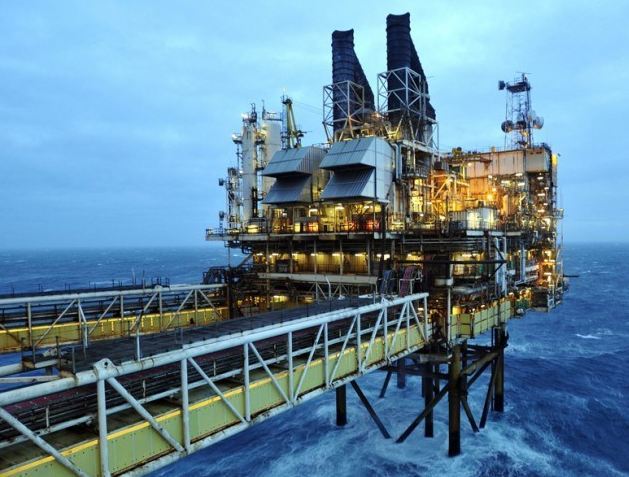
Scotland has benefited enormously from the huge oil wealth produced by the people of Aberdeen and the north-east.
Over 40 years, 42billion barrels have been taken out of the North Sea by an oil industry that worked out of Aberdeen and Peterhead.
And over many years in visits to Aberdeenshire to see my parents, or simply to visit the industry, I have seen how the skills developed in the north-east have boosted the British economy and kept the country ticking through thick and thin – and in decade after decade – since oil was first discovered.
Over 30 years oil, has averaged around 17% of the Scottish economy.
But now in a year when oil prices have fallen 40%, we face what is more than a normal trough in the oil production cycle as some of the industry’s great experts, Sir Ian Wood and Lord Browne, formerly of BP, have recently reminded us.
The fall in world oil prices comes at a time when extracting oil from the North Sea is more challenging than ever and has brought us, earlier than we could have expected, near to a tipping point for the industry.
Our best estimate is that production will fall from a peak of 4.3million barrels per day in 1999 to 1.3million barrels per day in 2018. It means that oil revenues will fall from a peak this century of £12billion to last year’s £6.5billion to an estimated £1-2billion this year and perhaps only £1-2billion in the year the SNP sought independence, 2016-2017 – barely enough to pay the pensions bill of 10% of our pensioners and not enough to pay even one month of the annual NHS bill in Scotland.
So the current problem is not only cyclical – it is not just the fall in oil prices and the loss of jobs as fields become non-commercial. The problem we have today is, as the Wood Report and subsequent oil reports have told us, structural and enduring.
But while it is completely wrong and indeed an act of vandalism to write off the North Sea, which could be producing oil for half a century to come, with anything between 12 and 24billion barrels of oil and gas waiting to be tapped, there may be no return to normalcy after this recent downturn in prices.
Investment has already fallen from £14.8billion last year and will decline to an estimated less than £8billion in 2016 and without intervention we will see an already diminishing number of fields further reduced because of not only the abandonment of plans for new fields, but the withdrawal from some existing fields, currently in production ‘shut-in’.
And so what marks out the current state of play is that while the old fields like Brent are near exhaustion and their closure is inevitable, there are many fields which need not be left behind, and yet are in danger of being undeveloped or underdeveloped and left valueless.
When Sir Ian Wood says that six billion barrels could be lost – the difference between the 16billion barrels available and the nine-10billion barrels that may now be extracted – that represents, even at today’s low prices, at least $300billion of lost oil. From the long view, this has to be seen not as unavoidable economic reality but as a market failure.
We need to find a way to maintain operations and to ensure that the resources which do exist, especially in small and marginal fields, can be developed when prices rise again.
The tax regime has always been controversial. I know this as a former chancellor – and tax changes to encourage continued investment are now essential in the budget later this month. But we need more than a tax reduction which can of itself do little for a loss-making operation in the short run.
A useful budget step would be to recognise the unique tipping point we are at and the structural damage that could be done if fields are summarily abandoned, and to agree a North Sea rescue plan, backed by the government, to maintain and upgrade essential infrastructure and to provide last resort debt finance for companies who want to keep fields open. This could not be a subsidy nor is it a state takeover.
Money would, in fact, go not to the operators but would simply finance the work necessary to keep fields operational, giving help where help is really needed in a partnership to keep fields in business.
We could help through loans or even with advance purchase agreements or at the last resort with innovative forms of public private partnership.
Each initiative will depend on a shared effort from the operators to invest their own money, but in the most extreme cases, to avoid a field of long-term value being mothballed in its entirety, the government could, if the industry wants it, go into temporary partnership with an operator to take over from a company that pulls out.
For if a field is to be abandoned, the government should work with operators to ensure that sometime in the future it is possible to come back to exploit the oil.
Oil will never again be the ‘get out of jail card’ for those who when they are quizzed on their policies always say it is oil that will pay for what they want to do.
But we can make the most of our oil reserves, rather than let them go to waste – and with the volatility of the world oil market and the strong prospect that prices could rise again, be ready with new measures for new decades of exploration and production. We owe this to all those who have given their lives to make the North Sea so successful a part of our economy.
Recommended for you
